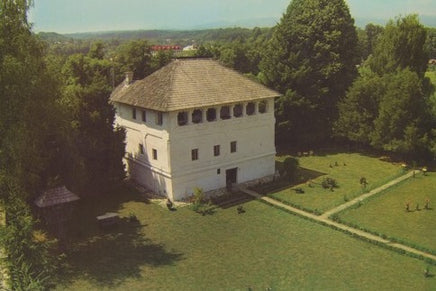 SALE
SALE
👀 As you hold this postcard in your hands, you can imagine yourself standing at that very spot, taking in all the sights and sounds around you. You might even feel inspired to plan your next adventure to Romania!
🎁 This product would make an excellent gift for anyone who loves traveling or collecting unique souvenirs from their journeys. It's perfect for people of all ages and backgrounds.
😊 The mood of this product is one of excitement and wonderment as it transports us to another place through its vibrant imagery.
💭 If you're new to postcards exchange hobby, don't worry! It's easy – simply find someone who shares your passion for travel (or join a group online) and start exchanging cards with them. You'll be amazed at how many interesting stories come out when sharing these little pieces of art!
⏰ When sending out this particular card, take some time to research more about Romanian history & culture so that whoever receives it will have a deeper appreciation for what they are seeing on the front side.
✈️ Imagine receiving this lovely card from someone halfway across the world – perhaps while sitting down with coffee or tea after work? What better way than getting transported into another country without leaving home?
💡 Best practices include writing something personal on each card before mailing them off; whether it’s just saying hello or sharing details about where we live/what we do daily life-wise- anything goes here really!
15 x 10 cm
The product is printed by a third party - to offer also "touristic postcards" of Romania.
--
A Romanian Cula (plural: Cule) is a type of fortified manor house that is unique to the historical region of Muntenia in Romania. The word "cula" comes from the Turkish word "kule", which means "tower". The Cule were built by the local boyars (nobility) during the 18th and 19th centuries as defensive structures to protect their families and property from invading Ottoman and Tatar forces.
The Cule were typically built on hilltops or other elevated locations, and were surrounded by walls or other defensive structures such as moats, drawbridges, and towers. They were designed to withstand attacks and often included hidden passages, secret rooms, and other features that allowed the inhabitants to defend themselves.
Inside, the Cule were typically decorated with ornate wood carvings and painted murals, and included a central courtyard, living quarters, storage rooms, and sometimes even a chapel. Some Cule were also used as centers of cultural and political activity, and played an important role in the social and economic life of the region.
Today, many Cule have been restored and preserved as historical monuments, providing visitors with a glimpse into Romania's rich cultural and architectural heritage.




























